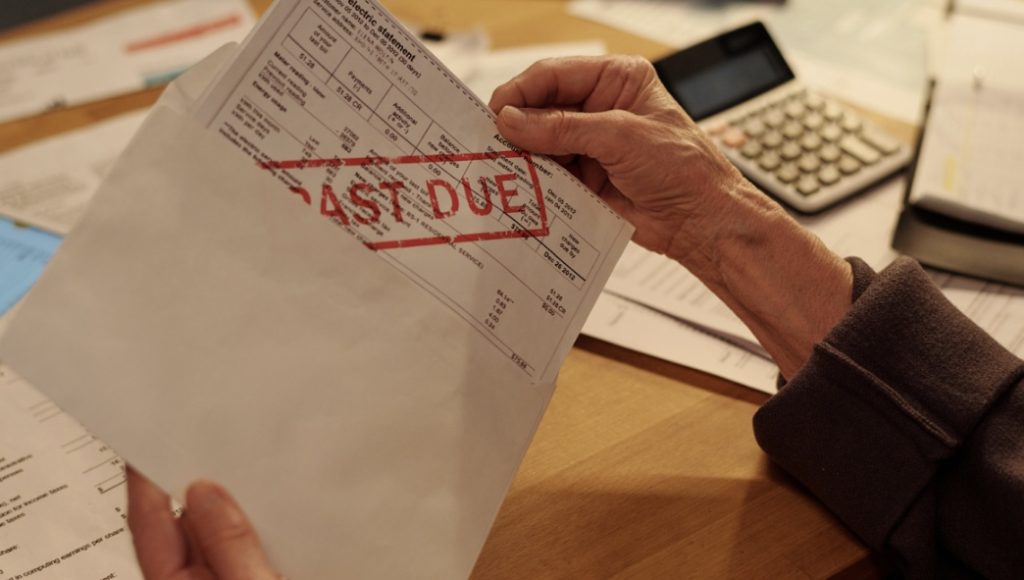Getting a call from a law firm about a debt can feel intimidating, but how you respond matters more than the call itself. Staying calm, informed, and professional helps you stay in control of the situation. Debt collection through law firms often follows missed payments or unresolved balances, but that doesn’t mean you’re out of options. By understanding your rights, verifying the debt, and communicating clearly, you can prevent missteps that lead to further complications. The goal isn’t to avoid the conversation, it’s to manage it confidently and responsibly.
What’s Really Happening When Law Firms Call About Debts
Getting a call from an actual attorney feels substantially different than hearing from your average debt collector. These calls typically surface after you’ve ignored months of letters and notices, carrying an unmistakable undertone of legal consequences.
Why Attorneys Enter the Debt Collection Game
Creditors bring in law firms once their usual collection tactics go nowhere. This escalation generally kicks in somewhere between 90 and 180 days after you’ve missed payments. The numbers tell an intense story: debt collection calls exploded by over 150% year-over-year, jumping from 44,999 in Q1 2024 to a staggering 112,583 in Q1 2025.
These firms work for either your original creditor or companies that bought your debt for a fraction of what you owed. When lawyers get involved, it’s a signal that court action could be right around the corner unless you address the situation.
Federal Law Has Your Back
The Fair Debt Collection Practices Act, FDCPA for short, shields you from abusive collection methods, even when you’re dealing with a law firm calling about debt. Yes, attorneys have to play by the same rules as regular collectors. They can’t ring you before 8 AM or past 9 PM. They can’t bombard you with call after call throughout your day.
Digital resources like Solo exist to help you figure out your next moves and craft proper responses. You get guidance on validation letters and settlement talks without shelling out for expensive legal fees upfront.
Real Law Firms vs. People Pretending to Be Lawyers
Here’s something crucial: not every official-sounding caller is legitimate. Genuine attorneys will hand over their bar registration number, their firm’s physical address, and specific details about your debt. Scammers? They dodge sending written proof and push hard for instant payment by phone. Always double-check credentials through your state’s bar association website before you engage with anyone claiming they represent a law firm.
Your First Moves When That Call Comes In
How you handle those initial moments shapes everything that comes after. Keep your composure, even though someone talking about lawsuits makes that incredibly difficult.
Write Down Absolutely Everything
Grab a pen immediately. Record the caller’s full name, their law firm’s name, callback number, and the exact time they contacted you. Write down precisely what they claim you owe and who they say is the original creditor. This documentation becomes your evidence if they cross legal lines. If your state permits one-party consent recording, think about using call recording software for any future conversations.
The Right Words and the Wrong Words
Never, ever confirm the debt belongs to you during that first conversation. Just tell them you need written verification. Don’t hand over banking information, your Social Security number, or make any payment promises. Those statements can come back to haunt you in court. Instead, request they mail written validation within five business days.
Switch Everything to Written Communication
Tell them you want all future contact in writing, period. This straightforward move is essential for how to handle debt collectors effectively because it builds your paper trail. Written exchanges give you breathing room to think clearly, do research, and craft strategic responses instead of reacting emotionally when they catch you off guard.
Making Them Prove You Actually Owe the Debt
Validation stands as your most powerful weapon when dealing with law firm debt calls because it forces them to prove they have the legal right to collect from you.
Mail Your Validation Request Before 30 Days Pass
Send a debt validation letter through certified mail within 30 days of their first contact. Your letter needs to demand proof that this debt is yours, identify the original creditor, and show documentation that this law firm has authority to collect. While they’re validating, they must pause all collection activities until they provide adequate proof.
What Papers They’re Required to Send You
The law firm needs to produce copies of your original agreement, account statements reflecting the balance, and documentation showing the chain of ownership if your debt was sold. Get this, nearly 47% of 2025 reports got flagged as abusive, threatening, or harassing, representing almost a 4x surge from the previous year. When documentation is missing or sloppy, you’ve got solid grounds to challenge the entire claim.
Finding the Holes in Their Proof
Examine whether the debt has exceeded your state’s statute of limitations. Hunt for mistakes in the amount, dates, or creditor details. These errors can potentially invalidate their claim entirely or give you serious leverage to negotiate a settlement for much less.
Smart Communication Tactics That Keep You Safe
A professional response to debt collection means you control exactly how and when these law firms interact with you.
Going to Written-Only Mode
Mail a cease-and-desist letter that stops phone calls while keeping written correspondence open. This isn’t an admission of anything, it’s protecting yourself from accidentally saying something damaging when you’re stressed and caught off guard. Email works for quick back-and-forth while maintaining records, though certified mail remains your best option for anything important.
How to Negotiate Settlements That Work
When the debt is legitimate, you can frequently settle for 30-50% of what’s owed. Law firms would rather take guaranteed partial payment than gamble on court outcomes. Always get settlement terms documented in writing before you send a single dollar. Never authorize automatic withdrawals from your bank account.
Crafting Written Settlement Proposals
A formal written offer demonstrates you’re acting in good faith while protecting your interests. Include documentation of your financial difficulties and make a realistic offer based on what you can actually afford. This structured method shows you’re serious about resolving things while keeping everything on the record.
The Consequences of Ignoring Them
Avoiding law firms calling about debt attempts creates serious problems that snowball over time.
The Path to Getting Sued
Law firms usually file lawsuits 30-90 days after initial contact when you don’t respond. Once they file, you’ll get served with a summons demanding your response within 20-30 days. Default judgments happen when people ignore that summons, handing collectors legal power to garnish your wages or empty your bank accounts.
What Collectors Can Do After Winning in Court
Wage garnishment can snatch up to 25% of your earnings. Bank levies freeze your accounts and seize whatever’s there to satisfy the judgment. Property liens get attached to your home, blocking any sale until you pay the debt. Certain income, like Social Security disability, stays protected, but you need to actively claim those exemptions.
How This Wrecks Your Credit Long-Term
Unpaid debts and court judgments obliterate your credit score for seven years. This impacts your ability to rent an apartment, finance a vehicle, or even get hired for certain positions. Settled debts still show on your credit report but display as resolved, which looks significantly better than ignored accounts.
When You Should Hire Your Own Attorney
Sometimes handling this yourself just isn’t realistic when you’re up against experienced collection lawyers.
FDCPA Violations That Deserve Legal Action
If a law firm harassed you, lied about what you owe, or made threats about illegal actions, you might have grounds for a counter-claim. FDCPA lawsuits can award you up to $1,000 plus your actual damages, and the law firm pays your attorney fees. Consumer rights attorneys frequently work on contingency, getting paid only when you win.
Fighting Back Against Debt Buyer Lawsuits
Companies that buy debts frequently lack proper paperwork proving they actually own your debt. An attorney can challenge their legal standing through discovery requests and interrogatories. This defensive approach often results in dismissed cases or settlements that favor you.
Taking Charge of Your Financial Situation
When a law firm contacts you about debt, the best response is calm professionalism. Avoid reacting emotionally or making quick promises until you’ve confirmed the details in writing. Keep records of every conversation and learn your rights under debt collection laws to protect yourself. If needed, seek advice from a financial counselor or attorney before agreeing to any settlement. Handling the situation with patience and clarity not only protects your finances but also shows that you’re serious about resolving the issue the right way, on your terms.
Your Biggest Questions About Law Firm Debt Calls
Can law firms blow up my phone multiple times every day about debt?
No way. The FDCPA specifically prohibits harassment through repeated calls meant to annoy or abuse you. Track the frequency and file complaints with the CFPB and FTC when they violate this rule.
What if there’s genuinely no way I can pay anything?
Explain your judgment-proof status if your income comes entirely from protected sources. Send financial hardship documentation proving essential expenses exceed your income, potentially prompting them to close your file since collection efforts would be pointless.
Should I actually verify the law firm through the bar association?
Absolutely, yes. Call your state bar association to confirm the attorney holds a valid license and check for any disciplinary history. This quick step reveals whether you’re dealing with legitimate legal representation or possible fraud.



